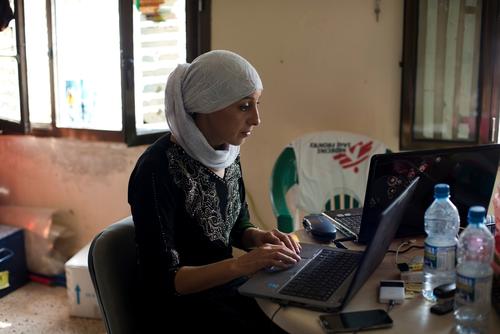UPDATE — As of 17 January, the death toll has risen to six after a critically injured patient died on 16 January in the MSF hospital in Saada. The medical team did all they possibly could, but the condition of the patient was extremely critical upon arrival at the hospital six days ago.
The blast at the MSF-supported hospital initially resulted in the death of five people, and eight were injured, two of them critically. While those critically wounded were transferred to the Intensive Care Unit in Saada, the rest were treated at the hospital in Razeh.
"We extend our condolences to the victim's family, whilst we condemn again the fact that a hospital was targeted in this conflict that has been ravaging the country for the past 10 months. We need to repeat over and over that the civilian population, the medical staff and the medical facilities should be protected during this conflict. One week after the explosion, patients and health workers are still scared to go back to the hospital. Attacking hospitals inflicts a terrible toll on the local population", says Juan Prieto, General Coordinator of MSF projects in Yemen.
Sana’a — An MSF-supported hospital has been hit by a projectile in northern Yemen resulting in at least four deaths, 10 injured and the collapse of several buildings of the medical facility. Three of the injured are MSF staff, two in critical condition.
According to our staff on the ground, at 09.20am one projectile impacted the Shiara hospital in Razeh District, where MSF has been working since November 2015. MSF cannot confirm the origin of the attack, but planes were seen flying over the facility at the time. At least one more projectile fell near the hospital. The numbers of casualties could rise as there could still be people trapped in the rubble. All staff and patients have evacuated and patients are being transferred to Al Goumoury hospital in Saada, also supported by MSF.
“All warring parties, including the Saudi-led coalition (SLC), are regularly informed of the GPS coordinates of the medical sites where MSF works and we are in constant dialogue with them to ensure that they understand the severity of the humanitarian consequences of the conflict and the need to respect the provision of medical services”, says Raquel Ayora, Director of Operations. “There is no way that anyone with the capacity to carry out an airstrike or launch a rocket would not have known that the Shiara hospital was a functioning health facility providing critical services and supported by MSF.”
We reiterate to all parties to the conflict that patients and medical facilities must be respected and that bombing hospitals is a violation of International Humanitarian Law.Racquel Ayora, MSF Director of Operations
The conflict is particularly acute in Razeh District. The population in the area has been severely affected by constant bombings and the cumulative weight of 10 months of war. Shiara hospital had already been bombed before MSF started supporting it and services were reduced to stabilisation, emergency, maternity and life-saving activities.
This is the third severe incident affecting an MSF health facility in Yemen in the last three months. On 27 October Haydan hospital was destroyed by an airstrike by the SLC and on 3 December a health centre in Taiz was also hit by the SLC and nine people were wounded. MSF teams struggle on a daily basis to ensure the respect of health facilities by all armed groups.
“We reiterate to all parties to the conflict that patients and medical facilities must be respected and that bombing hospitals is a violation of International Humanitarian Law,” says Ayora.
“We strongly condemn this incident that confirms a worrying pattern of attacks on essential medical services and we express our strongest outrage as this will leave a very fragile population without healthcare for weeks”, says Ayora. “Once more it is civilians that bear the brunt of this war.”
MSF asks for an immediate end to attacks on medical structures and requests that all parties unequivocally commit to creating the conditions for the safe delivery of humanitarian assistance. MSF also requests that those responsible for this attack investigate the circumstances of the incident.
In Yemen, MSF is working in Aden, Al-Dhale’, Taiz, Saada, Amran, Hajjah, Ibb and Sana’a governorates.Since the start of the current crisis in March 2015, MSF teams have treated more than 20,000 war-wounded patients. More than 790 tonnes of medical supplies have been sent by MSF so far. MSF is managing 11 hospitals and health centres and regularly supports 18 health centres. With the healthcare system barely functioning, MSF is also providing non-emergency health services.




